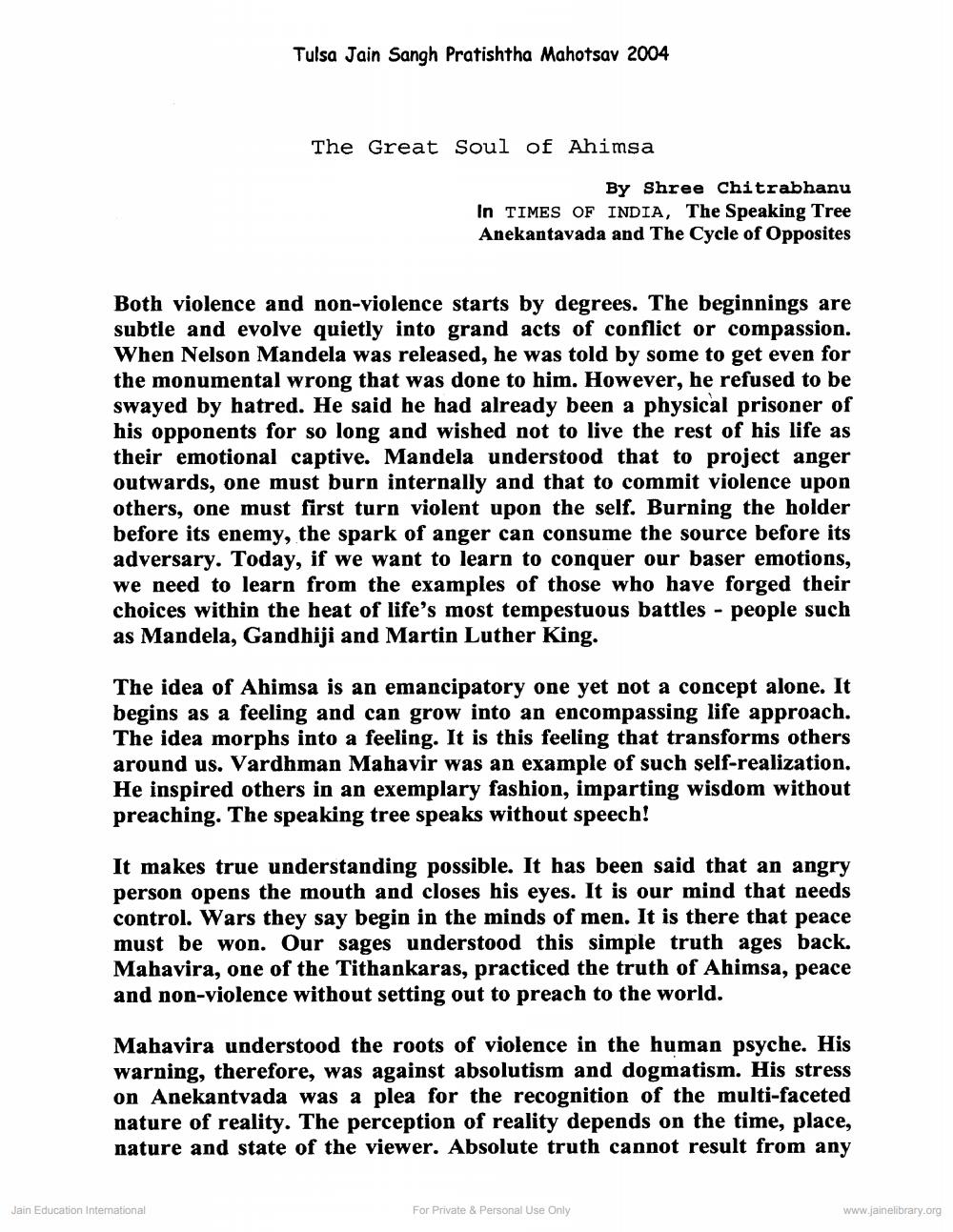________________
Tulsa Jain Sangh Pratishtha Mahotsav 2004
The Great Soul of Ahimsa
By Shree Chitrabhanu In TIMES OF INDIA, The Speaking Tree Anekantavada and The Cycle of Opposites
Both violence and non-violence starts by degrees. The beginnings are subtle and evolve quietly into grand acts of conflict or compassion. When Nelson Mandela was released, he was told by some to get even for the monumental wrong that was done to him. However, he refused to be swayed by hatred. He said he had already been a physical prisoner of his opponents for so long and wished not to live the rest of his life as their emotional captive. Mandela understood that to project anger outwards, one must burn internally and that to commit violence upon others, one must first turn violent upon the self. Burning the holder before its enemy, the spark of anger can consume the source before its adversary. Today, if we want to learn to conquer our baser emotions, we need to learn from the examples of those who have forged their choices within the heat of life's most tempestuous battles - people such as Mandela, Gandhiji and Martin Luther King.
The idea of Ahimsa is an emancipatory one yet not a concept alone. It begins as a feeling and can grow into an encompassing life approach. The idea morphs into a feeling. It is this feeling that transforms others around us. Vardhman Mahavir was an example of such self-realization. He inspired others in an exemplary fashion, imparting wisdom without preaching. The speaking tree speaks without speech!
It makes true understanding possible. It has been said that an angry person opens the mouth and closes his eyes. It is our mind that needs control. Wars they say begin in the minds of men. It is there that peace must be won. Our sages understood this simple truth ages back. Mahavira, one of the Tithankaras, practiced the truth of Ahimsa, peace and non-violence without setting out to preach to the world.
Mahavira understood the roots of violence in the human psyche. His warning, therefore, was against absolutism and dogmatism. His stress on Anekantvada was a plea for the recognition of the multi-faceted nature of reality. The perception of reality depends on the time, place, nature and state of the viewer. Absolute truth cannot result from any
Jain Education Intemational
For Private & Personal Use Only
www.jainelibrary.org




